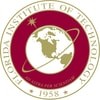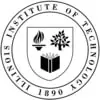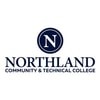Best Online Engineering Colleges
Get detailed information about best online Engineering colleges and their tuition, accreditation, career prospects, scholarships, admission details and much more
Online Engineering Colleges
Engineering is the creative and innovative ideas, concepts and applications of science, mathematical techniques, and empirical evidence to the design, construction, and maintenance of structures, machines, devices, systems, and organizations. This program focuses on giving the practical and theoretical applications of things on the basis of science, mathematics, logic, etc.
Most of the engineering educational institutes are accredited to any of the recognized accrediting agencies as students prefer colleges with accreditation facility. Few accrediting agencies for engineering are:
-
Accreditation Board for Engineering and Technology (ABET)
-
Accreditation Council for Business Schools and Programs (ACBSP)
- Council for the Accreditation of Educator Preparation (CAEP)
Mathematics is one of the common subjects which come under all streams of engineering. Subjects vary depending on the stream of engineering you take up.
An Associate’s degree requires 60-65 credits and takes 2 years to be completed. This engineering program can be a start-up of your journey to achieve other higher degrees in engineering.
A Bachelor’s degree requires 120-130 credits and takes 4-5 years to be completed. It provides in-depth knowledge about the engineering program and the aspects of engineering.
A Master’s degree requires 30-45 credits and takes 2 years to be completed. People take up masters to expertise themselves and learn advanced techniques in a particular field.
A Doctorate’s degree requires 60-70 credits and takes 3-6 years to be completed. People who go for advanced study and research in any of the engineering fields are given a doctorate in engineering. People who take up their research in applied science are also given a doctorate in engineering.
The minimum GPA a student must get in their high school diploma to enter an engineering field is 2.0 – 3.0 GPA.
The engineering program provides a better understanding of the different fields of engineering. The program equips the students with skills and abilities to explore new skills develop logical reasoning, creativity, problem-solving, and implementing the ideas and concepts to create new structures and machines.
Robert Morris University (RMU)
Pittsburgh, Pennsylvania
Institution Type: Private Not-For-Profit
Engineering Accreditations: ABET
Average Federal Student Loans awarded: $5,660
Average Student Loans Awarded: $9,157
Total Programs in Engineering (1)
1
Masters Program
Florida Institute of Technology
Melbourne, Florida
Institution Type: Private Not-For-Profit
Engineering Accreditation: Request Info
Average Federal Student Loans awarded: $5,697
Average Student Loans Awarded: $7,756
Total Programs in Engineering (4)
4
Masters Programs
Illinois Institute of Technology
Chicago, Illinois
Institution Type: Private Not-For-Profit
Engineering Accreditation: Request Info
Average Federal Student Loans awarded: $5,901
Average Student Loans Awarded: $6,823
Total Programs in Engineering (13)
12
Masters Programs
1
Bachelors Program
Indiana Institute of Technology
Fort Wayne, Indiana
Institution Type: Private Not-For-Profit
Engineering Accreditation: Request Info
Average Federal Student Loans awarded: $8,299
Average Student Loans Awarded: $9,027
Total Programs in Engineering (2)
2
Masters Programs
Institution Type: Public
Engineering Accreditation: Request Info
Average Federal Student Loans awarded: $5,185
Average Student Loans Awarded: $7,682
Total Programs in Engineering (8)
2
Masters Programs
2
Doctorate Programs
4
Graduate Certificate Programs
Northland Community and Technical College
Thief River Falls, Minnesota
Institution Type: Public
Engineering Accreditation: Request Info
Average Federal Student Loans awarded: $5,670
Average Student Loans Awarded: $6,199
Total Programs in Engineering (5)
4
Undergraduate Certificate Programs
1
Associate Program
Morgan State University
Baltimore, Maryland
Institution Type: Public
Engineering Accreditations: ABET
Average Federal Student Loans awarded: $6,105
Average Student Loans Awarded: $6,790
Total Programs in Engineering (1)
1
Masters Program
Oakland University
Rochester Hills, Michigan
Institution Type: Public
Engineering Accreditation: Request Info
Average Federal Student Loans awarded: $5,105
Average Student Loans Awarded: $5,568
Total Programs in Engineering (1)
1
Masters Program







